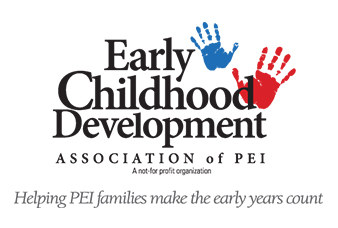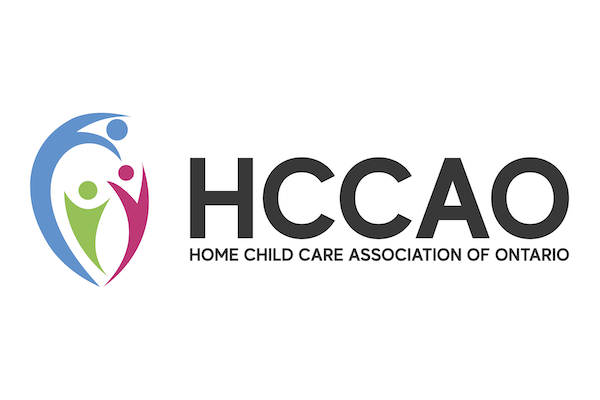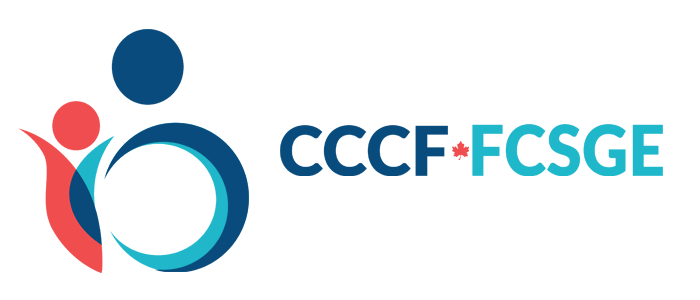We envision an equitably funded Early Learning and Child Care (ELCC) system that provides culturally affirming environments and curriculum for all children to flourish wherever they live in Canada.
At the Canadian Child Care Federation (CCCF), we stand committed to work collectively towards a Canada where every child receives high quality Early Learning and Care, irrespective of family type, parental employment and income.
The Rights of All Children: Pedagogy Creates Quality Programs
We champion children as valued citizens, with voices that deserve attention and rights to be protected.1 All children have the right to quality learning and care.
Upholding children’s rights in Canada paves the way for a high-quality national ELCC system—one that centers the Early Childhood Educator (ECE ) in its design.
Well-supported educators will create relevant, lively and respectful spaces for children that honour diversity. Inclusive policies with innovative programs will foster caring societies for children, educators, families and communities.
Join us as we collaborate on this vision with governments and all in the ELCC sector to elevate accessible, affordable, inclusive and high-quality services for children and families.
Building Foundations: Investing in Quality Early Learning and Early Childhood Educators
Crafting high-quality ELCC services requires innovative workforce strategies that lay the foundation for safe, nurturing learning environments while also supporting dedicated educators.
Our vision is anchored in comprehensive strategies that fully support fair compensation, benefits, education, and a sustainable future for our educators.
Investing in Early Childhood Educators (ECEs) and Family Child Care (FCC) providers requires progressive solutions that allocate resources, foster collaboration, and meet the needs of both families and the workforce.
The CCCF advocates for public resources to build foundations that allow the sector to flourish, delivering exemplary learning and care environments.
Methodology: Experts in Early Learning
To achieve this world class vision, we are drawing upon decades of evidence-based research and leveraging collaborative dialogue among ELCC organizations.
Our aim is to ignite crucial and strategic discussions at national, provincial and local government levels that will put forward practical recommendations for how to achieve a pan-Canadian system that supports the entire sector, including children, families and the workforce.
System Building within the Canada-wide Early Learning and Child Care Plan
At the core of our system-building vision is a child-centred approach that drives us to prioritize accessibility, affordability and high-quality services for families, while enhancing the professionalism of ELCC workers and safeguarding children’s rights.
Realizing this vision takes collaborative approaches across all jurisdictions and will collectively strengthen the Canada-wide ELCC plan. We aim to guarantee every Canadian child receives the quality learning and care they deserve through a properly funded and managed public system.
Committing to Families and Workforce Needs
Central to our vision is a commitment to meet the needs of both families and the ELCC workforce.
A properly managed system must engage families and communities, and also ensure ECEs are equipped with proper human resource supports to deliver exemplary services. Our vision requires strategies that create high-quality learning and care environments, empower children to realize their full potential, and support a professional workforce.
Creating Evidence-informed Quality Early Learning Environments
Creating enriched environments, where every child receives quality learning and care, and educators enjoy professional career satisfaction, requires a multifaceted approach.
It will take a concerted focus on enhancing the well-being of the workforce, while also championing initiatives that promote high standards of practice in care
and education.
An integrated approach to workforce strategy will require quality pedagogy, robust systems, fair compensation and opportunities for career
advancement.
Fostering Collaboration and Allocating Resources
Through collective efforts, we can cultivate a public ELCC system that exemplifies excellence, inclusivity and responsiveness to the evolving needs of the sector, children and families. Our collaborative approaches should be steadfast to upholding children’s rights.
Realizing our vision hinges on pivotal collaboration between governmental bodies and ELCC sector advocates. By creating strategic partnerships, we will pinpoint systemic challenges, including outdated funding formulas and workforce shortages, and direct targeted investments to addressing them.
Resources must be allocated towards a robust ELCC system that builds a sustainable future where every child in Canada has publicly funded opportunities to flourish from their earliest years onwards.
We encourage deeper examination into the CCCF’s strategic workforce pillars, which are designed to uphold the rights of Canadian children while providing appropriate support for dedicated ECEs and FCC providers.
Requirements for a Sustainable ELCC Strategy
1) Quality Pedagogy
Providing high-quality learning and care environments is essential for nurturing children’s development and well-being. At the heart of this lies effective pedagogy to ensure every child receives the support and guidance in early learning and care they are entitled to.
Quality pedagogy isn’t just a concept; it’s a dynamic practice encompassing leadership at the program level, collaborative relationships with families, and purpose-driven programs designed to promote children’s development.
Quality pedagogy isn’t just a concept; it’s a dynamic practice encompassing leadership at the program level, collaborative relationships with families, and purpose-driven programs designed to promote children’s development.2
It requires skilled educators who provide children with the best possible opportunities in their early learning and care environments.
“The dedication comes from the people around you, as well. The children obviously, and it’s your team. A strong team around you helps with those tougher days, because you do support each other.“
Sandy Desjardins, RECE, Infant Educator
Pioneering research conducted across Canada, including initiatives like the Ontario Roadmap and Prince Edward Island’s Action Plan, underscores the critical role of pedagogy in fostering optimal child development through a supported workforce.
In Ontario’s Roadmap, fair compensation is recognized as a cornerstone in quality pedagogy. The document advocates for publicly-funded salary scales to recognize the invaluable contributions of educators.3
And by prioritizing strategies such as these, stable and nurturing relationships between educators and children can be cultivated, laying the groundwork for holistic development.
Similarly, PEI’s Action Plan bolsters quality pedagogy through targeted initiatives such as education training grants and innovative practice grants. These initiatives are designed to enhance retention efforts and promote excellence in early childhood education.4
The Ontario Roadmap and PEI Action plan both highlight the profound impact of quality pedagogy on children’s well-being while underscoring the importance of investing in the workforce to create quality ELCC environments.
Pioneering research conducted across Canada, including initiatives like the Ontario Roadmap and Prince Edward Island’s Action Plan, underscores the critical role of pedagogy in fostering optimal child development through a supported workforce.
In Ontario’s Roadmap, fair compensation is recognized as a cornerstone in quality pedagogy. The document advocates for publicly-funded salary scales to recognize the invaluable contributions of educators.5
And by prioritizing strategies such as these, stable and nurturing relationships between educators and children can be cultivated, laying the groundwork for holistic development. Similarly, PEI’s Action Plan bolsters quality pedagogy through targeted initiatives such as education training grants and innovative practice grants. These initiatives are designed to enhance retention efforts and promote excellence in early childhood education.6
The Ontario Roadmap and PEI Action plan both highlight the profound impact of quality pedagogy on children’s well-being while underscoring the importance of investing in the workforce to create quality ELCC environments.
Governments have primarily focused on lowering fees rather than developing funding models for expansion.
2) Robust Systems
The surging demand for regulated child care spaces nationwide illuminates both the success and necessity of the current Canada-wide plan. It also signals an urgent need for a system capable of supporting a professional workforce required to fulfill the rights of Canadian children.
Ensuring sustainability of this system involves meeting current needs of children, families and educators, while also being prepared to address future challenges and advancements in the ELCC sector. Achieving this vision requires effective system building policies and a robust commitment to adequate public funding.
To address the demand, the CCCF recommends comprehensive planning and financing strategies:
“Governments have primarily focused on lowering fees rather than developing funding models for expansion.
We urge governments at all levels to shift their focus to this critical task immediately. Of course, this must be coupled with a workforce strategy, as expansion is simply impossible without more educators. Therefore, any funding model must include a wage grid that offers wage increases that are significant enough to attract and retain workers.” 7
To succeed, a collaborative and strategic federal approach with provinces and territories is essential, including integrating child care into economic plans to secure vital funding and resources for a public sector to thrive.
Recommendations for robust system-building strategies can be found in provincial roadmaps developed through collaborative efforts of ELCC experts.4 ,7, 8, 9 We encourage governments and stakeholders to apply the key policy directions identified in these documents so our vision for a child-centred, properly funded and managed public system can be realized.4, 7, 8, 9
In communities nationwide, we must collaborate to cultivate a robust system that supports the ELCC sector and creates environments where children’s rights are upheld.
“To feel like you’re not being paid properly for the work that you’re doing, it really undermines the position. It makes you feel like the education that I got and the effort I’m putting in, it’s not keeping up with the quality of life I want to live. And it also feels like it sends a message to a workforce that is primarily women that the work they are doing isn’t valued financially.”
Layla Abdi, RECE Preschool Educator
3) Fair Compensation
Picture this: passionate educators in pivotal roles shaping and nurturing the development of young children, all while grappling with financial instability caused by low wages and insufficient benefits. There is a critical need to address the longstanding issues of under-investment and undervaluation within the ELCC sector.
This disparity has been exacerbated by the COVID-19 pandemic, which has placed additional strain on ECEs, especially for women (96 per cent of the ELCC workforce) and immigrants (representing one third of ECEs).8
As a result, many talented professionals have left the sector, turnover rates have increased and the quality of care has been compromised. With nearly 50 per cent of ECEs leaving the field within the first five years, it’s no wonder the ELCC sector is facing crisis in consistency and quality.9
Despite requiring post-secondary education and specialized skills, ECEs often face disproportionately low wages that do not reflect the value of their work and education.
Our vision demands a system that invests in fair compensation. When educators are valued, they are able to support themselves and their families, job satisfaction and retention rates increase, and most importantly the quality of care raises.
Essential components of our vision for a properly funded and managed public system include fair wages, comprehensive benefits packages, including healthcare and retirement plans, and pension plans. A sustainable system will not succeed without proper support for human resource and management practices.
By ensuring ECEs are equitably and competitively compensated for their invaluable expertise, we not only recognize their professionalism but also promote their financial stability and well-being. And this commitment must be maintained to realize an accessible, affordable and high-quality system for both children and the workforce.
“I’m hoping that to the children ten years from now, I hope they can still recognize this face and remember the impact and fun I brought to them.”
Nicholas Riseboroug, RECE School Age Educator
4) Career Pathways
A resilient and empowered ECE workforce is essential for providing high-quality learning and care to our youngest citizens. Yet, educators face numerous challenges when navigating the ELCC landscape, including limited avenues for career advancement and professional growth, unlike other publicly funded professions such as school teachers and nurses.
The CCCF advocates for dynamic career pathways that propel ECEs towards excellence and growth in their careers. We reject the notion that the career journey for ECEs hits a ceiling post-graduation.
Our vision includes investing in ongoing opportunities, such as professional development programs, workshops, mentorships and conferences to enhance pedagogical knowledge and skills. Additionally, our vision extends beyond professional development opportunities and includes educational advancements such as scholarships, grants and tuition assistance programs.10 These initiatives enable ECEs to pursue higher levels of education and accreditation.
By providing ECEs with the resources and support they need to thrive in their careers, we elevate the professionalism of the field and ensure children receive the highest standard of care and education. Meaningful change doesn’t happen in isolation; it’s a collaborative effort at the municipal, provincial and national governmental levels.
Governments must reject the false dichotomy between child care and education, as well as the overemphasis on child care solely for supporting parental workforce participation. These perspectives undermine the professional contributions of ECEs and devalue the integral role they play in early childhood development.11 Our vision is to transform the ELCC landscape by prioritizing the diverse needs of the workforce and fostering an environment of the highest standard of learning and care. Through collaborative strategies, we will sculpt a public system that fully supports our dedicated workforce, ensuring optimal conditions that uphold the rights of every Canadian child.
“To feel like you’re not being paid properly for the work that you’re doing, it really undermines the position. It makes you feel like the education that I got and the effort I’m putting in, it’s not keeping up with the quality of life I want to live. And it also feels like it sends a message to a workforce that is primarily women that the work they are doing isn’t valued financially.”
Our vision is to transform the ELCC landscape by strengthening the ECE profession to meet the complex needs of children and their families and foster environments of the highest standard of learning and care.
We put this Vision forward in full support of the rights of First Nations, Inuit and Métis Peoples to design, develop, and deliver early care and learning services that meet their needs. We support the Indigenous Early Learning and Child Care Framework and acknowledge that Indigenous communities have and may evolve their services in directions other than those outlined in this Vision, creating models to learn from and strive for. We commit to listen and learn in our ongoing work to decolonize our own practices and perspectives.










- Hick, 2005 ↩︎
- ↩︎
- Ontario Roadmap ↩︎
- PEI: Early Learning and Child Care Investments (Action Plan) ↩︎
- Alberta Roadmap ↩︎
- Manitoba Roadmap ↩︎
- TD Economics Report: https://torontosun.com/opinion/columnists/opinion-
national-child-care-program-is-necessary-for-canadas-economic-growth ↩︎ - The Burnout Crisis report ↩︎
- ECE Report, Workforce Report 2022: https://ecereport.ca/en/workforce-report ↩︎
- CCCF submission on Bill C-35, An Act Respecting Early Learning and Child Care in Canada ↩︎
- https://childcarecanada.org/documents/child-care-news/16/06/one-five-early-childhood-educators-plan-leave-profession ↩︎












